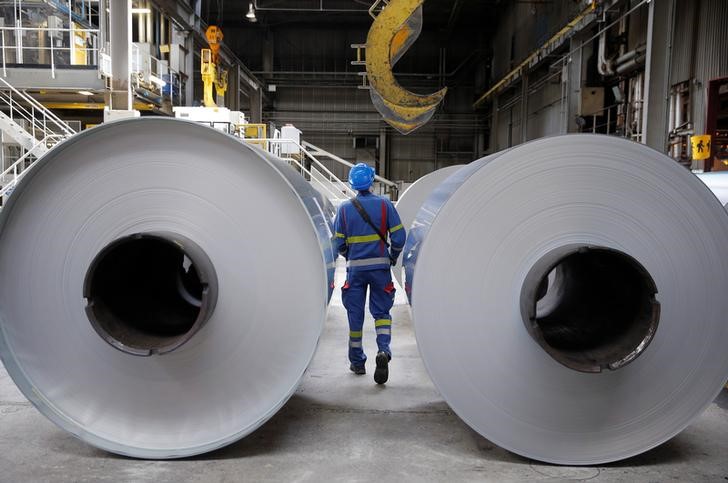Japan records surprise trade deficit in July as exports weaken further
(Bloomberg) -- Aluminum has overtaken copper as the second-best performer on the London Metal Exchange this year as a tight global market helps to offset worries about China’s planned release of strategic reserves.
Prices for the metal used in cars and cans are up more than 21% this year on the LME, compared with an 18% gain for copper and 48% for leading performer tin. Copper and aluminum have both been buffeted by China’s efforts to tame price inflation in commodities markets over the past month, but so far aluminum is proving more resilient as signals from the physical market point to diverging supply conditions.
That divergence is highlighted by the premiums paid by buyers to receive metal in the Asian market, which are widely watched as a barometer of spot demand. In Japan, aluminum consumers are paying the biggest surcharges since 2015, while Chinese buyers are enjoying the lowest premiums for copper since at least 2017.
Orders for metal stored in warehouses tracked by the LME paint a similar picture. So-called canceled warrants for copper hit the lowest level in nearly a decade on Monday, while aluminum orders have jumped to the highest level since the start of the pandemic.
The signs of a tight aluminum market have arisen during a rapid turnaround in the industry. Demand for the metal used in cars and planes was hit hard as travel ground to a halt early on in the pandemic, but it’s since snapped back strongly, while curbs on pollution in China have dramatically altered the outlook for supply. Now, Chinese authorities are juggling the need to cut carbon emissions while also trying to put the brake on a rally in aluminum prices by releasing strategic reserves of the metal.
Aluminum traded little changed at $2,406 a ton as of 11:57 a.m. on the LME, down nearly 8% from its peak in mid-May. Copper edged higher to $9,204 a ton, down more than 14% from a record high struck last month.
©2021 Bloomberg L.P.
